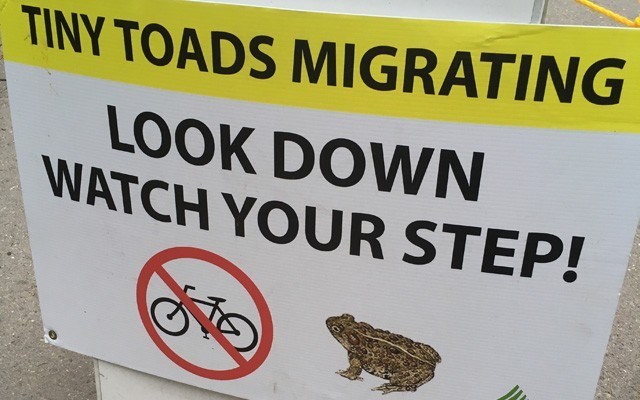The great toad migration is set to begin again.
Portions of Lost Lake Park will be closed over the next few weeks as tens of thousands of tiny Western toadlets make their march from the shores of Lost Lake into the surrounding forest.
Starting August 5, the Lost Lake access road and parking lot will be closed to all vehicle traffic.
Visitors are encouraged to walk to Lost Lake to see the migration first-hand and learn more about the toads from naturalists onsite, but are reminded to tread carefully — the tiny toads are easily crushed underfoot.
During the migration, Lost Lake beach, beach lawn and beachcut trail will stay open to foot traffic only. Detour signs will be posted at trail junctions for those on bikes or with dogs (these areas may be subject to closure if the migration gets too heavy — stay up to date on closures at www.whistler.ca/toads).
The free shuttle to Lost Lake will continue for now, but visitors will be dropped at the entrance to Lost Lake Park on Blackcomb Way.
Food trucks will temporarily relocate to Lakeside Park (check www.whistler.ca/foodtrucks for the full schedule).
The Resort Municipality of Whistler (RMOW) runs a biomonitoring program that tracks indicator species — or species that can be studied to provide insight on the greater health of the local ecosystem.
Lost Lake's Western toads have been monitored for the past 11 years, and the RMOW has been assisting with the migration for the past eight.
Back in May, 41 breeding Western toad pairs were seen in Lost Lake — a local record.
Each female can lay up to 50,000 eggs, resulting in hundreds of thousands of tadpoles on the shores of Lost Lake.




